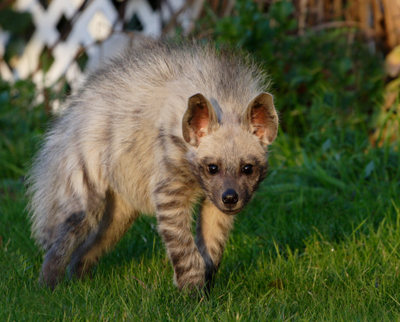“Do exotic animals make good pets?” is one of the most common sentences I hear, often with the words  “exotic animals” replaced with a particular animal, and there is never a good answer because it is the wrong question! There is broad array of animals and an even broader array of human preferences, so the right question is, “Would this particular type of animal make a good pet for me right now?”
“exotic animals” replaced with a particular animal, and there is never a good answer because it is the wrong question! There is broad array of animals and an even broader array of human preferences, so the right question is, “Would this particular type of animal make a good pet for me right now?”
Let me clarify this with a metaphor: Is a Ferrari a good car? If you are looking for a reliable vehicle that gets good gas mileage, has low cost of ownership, and can transport your children to soccer practice, NO! If you are looking for a safe vehicle for your reckless 17 year old son, NO! If you are looking for a beautiful Italian sports car that goes very fast and impresses the ladies, YES! Is a Ferrari dangerous? That depends entirely on the driver. Most people should not get a Ferrari, but for those who should it is a perfect choice. Same thing with any animal, domestic, wild, or exotic—if the particular animal fits into your lifestyle and you understand and accept the compromises required to care for that animal, you can have a wonderful and safe experience that is deeply rewarding for both you and the animal. If you do not fully understand what you are getting into, there is a high likelihood that both you and the animal will be miserable…
Speak candidly with as many people as possible who have experience with the animal you are considering, and gather as much information as you can about the pros and cons of the animal. Be honest with them about your lifestyle, personality, and concerns, and listen carefully to everything they say. Spend some time around a few animals that are similar to what you are considering, and not only for a few minutes on their best behavior—offer to help clean cages, give them a bath, babysit for a weekend, whatever you can do to really understand what life with this animal is like. Once you understand the negatives, you need to do three things carefully:
1. Envision the worst case scenario. You will likely do better than the worst case, but maybe not, so be prepared! Listen to all the negatives and imagine that you get an animal that does ALL of the worst things you hear. Think about these negatives in the context of your preferences—are you tidy, quiet, like to sleep late, squeamish about feeding certain things, etc. Will you still be happy with that animal?
2. Really, carefully imagine what those negatives mean over the lifetime of the animal. It is easy to say that you do not mind being kept up overnight by noise, but by year seven you may not feel the same way. It is easy to say you do not mind odor, or cleaning up many times per day, or having your couch chewed up, but imagine how you will feel when you have been living with that negative for years. When I got a crow, I was warned that they poop lots. Big deal, I have plenty of animals that poop lots… But a few years later, it IS a big deal. I change my shirt 10 times every day, and mop the floor and wipe the couch and clean the wall and the seats in the car… How will you feel about those negative later if you get married or have children? How will you feel when you cannot go on vacation because you cannot find anyone to watch your animal? Genuinely and carefully think about this…
3. Research the laws and regulations concerning the animal you want to own. Federal, state, county, city, etc. Make sure that you understand the rules so you do not risk yourself or your animal by breaking them.
All of these issues should be exactly the same whether you are getting a goldfish, cat, dog, monkey, wolf, or lion. If you go through these steps and are certain that you are prepared to live with the animal for its lifetime and make the requisite compromises, then you and the animal will likely have a wonderful experience. Do as much research as possible, find a responsible breeder who has great animals and will give you support, get everything set up, and go for it! But if you are at all unsure, take more time to think about it: this is an important decision that will impact you and the animal for many years to come…
